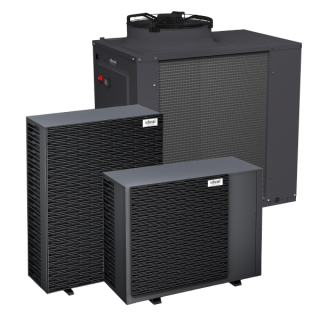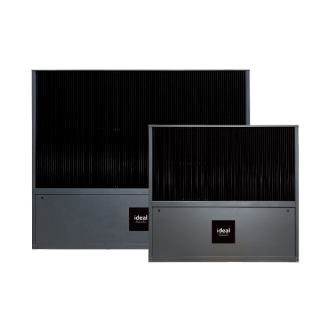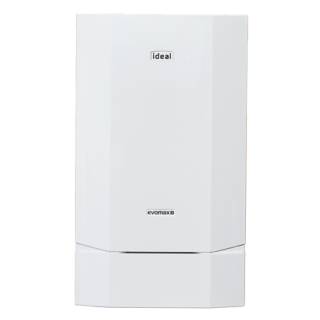Countless coverage has been dedicated to domestic air source heat pumps across news and social media platforms, some of it with a negative bias. There’s the high cost in comparison to a gas boiler, the difficulties of retrofitting heat pumps into older, poorly insulated properties, plus a lack of skilled installers. But whilst the media storm rages, larger heat pumps designed for commercial properties are being successfully installed across the UK, delivering heat and, step by step, transitioning us towards decarbonisation.
Are commercial heat pumps different to domestic ones?
All air source heat pumps work on the same principal of using a refrigeration cycle to transfer heat from external air and using it for heating and in some cases, hot water within a building.
To explain in more detail: a fan passes ambient air over extremely cold liquid refrigerant. The refrigerant captures the heat from the ambient air and becomes a warm vapour. That vapour passes through a compressor which produces hot refrigerant. The heat in the hot refrigerant is then transferred to the heating and hot water system through a heat exchanger. After the heat is transferred the refrigerant passes through an expansion valve which reduces its temperature, making it really cold again and enabling it to capture heat from the ambient air, continuing the cycle.
Even when it’s very cold outside, down to minus 20°C a heat pump will still work and will still deliver heat, although at minus external air temperature figures it does have to work harder and is therefore less efficient.
Both domestic and commercial heat pumps work in this same way, but with commercial heat pumps the units are understandably larger and more powerful.
Where can commercial heat pumps be used?
Commercial heat pumps have a wide range of commercial and industrial applications, including new build, refurbishment and retro-fit:
- Schools
- Retail premises
- Warehouses
- Office blocks
- Leisure facilities
- Apartment buildings (including those operating a heat network or district heating)
- Sites requiring low GWP (Global Warming Potential)
- Clients with net zero commitments
- Buildings with Part L requirements
Any commercial building can benefit from a heat pump as long as it has effective insulation, external space for the heat pump unit, and the unit is correctly sized, as well as having access to a sufficient electrical supply. Thermal insulation is key here as without it the system will need to overcompensate to maintain a steady temperature.
Another important consideration, is the radiators. Heat pumps operate at lower temperatures to gas boilers, so ideally larger radiators are required to get the best efficiency from the heat pump and to effectively heat the building. This may mean replacing the radiators, which is a cost that needs to be factored in.
What are the benefits of a heat pump for commercial buildings?
Heat pumps have many benefits when it comes to commercial properties. Let’s look at each of these in turn:
- Heat pumps are very energy efficient. Heat pumps can be up to 500% more efficient than traditional boilers. That means they can operate up to almost five times more efficiently, and have the potential to produce up to five units of heat for every one unit of electricity that they use.
- Heat pumps produce renewable heat. Heat pumps utilise the free energy in the air to heat water in your heating system. The heat from the air is transferred rather than generated. When they are partnered with a renewable electricity supplier, heat generation is 100% carbon neutral.
- Heat pumps have significantly reduced carbon emissions. Heat pumps use a small amount of electricity to power the transfer of heat from the environment to the building, and as a result emit no direct CO2 compared to traditional gas boilers or direct electric appliances. It is estimated that this reduction in carbon emissions is around 65-70% in commercial buildings.
- Heat Pumps require little maintenance. Heat pumps are a closed loop system and rarely require maintenance. When installed correctly, a commercial heat pump system can easily last for several years.
Ideal Heating’s range of ECOMOD monobloc air source heat pumps have been specifically designed for use in commercial applications. They are available in a choice of refrigerants – R32, R290 and R744 – and can be used alone or cascaded to meet the heating requirements of larger buildings. Each model in the range will suit commercial situations more than others, whilst also combining with alternative Ideal products, such as the EVOMAX 2 and the IMAX XTRA 2 commercial condensing boilers, to build a low carbon hybrid heating system.
To find out more about commercial heat pumps, contact your business development manager.




